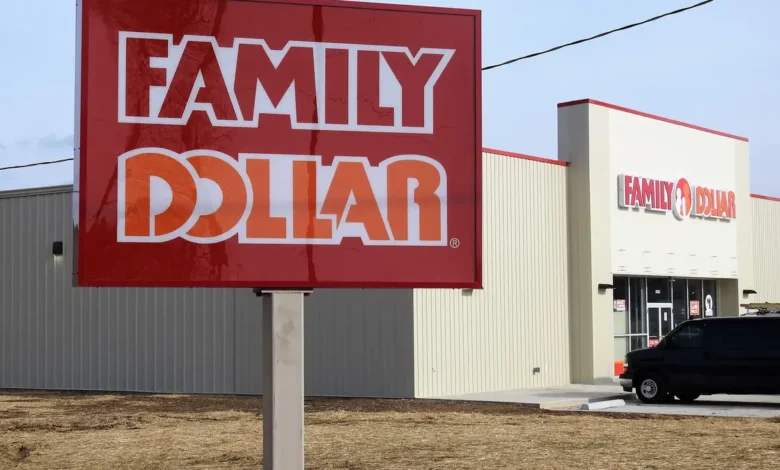Family Dollar Ohio Store Closure Today: What You Need to Know

Family Dollar Ohio store closure today leaves communities scrambling. Learn the reasons behind the closures, community reactions, and what it means for shoppers and workers.
Family Dollar has been a staple in many communities across Ohio, offering affordable prices on essential items for families on a budget. But today, the news of yet another Family Dollar Ohio store closure has sparked concern and curiosity among locals. What happened? Why is Family Dollar closing stores in Ohio, and what does this mean for employees, customers, and local economies?
This article will dive deep into everything you need to know about the Family Dollar Ohio store closure today. From reasons behind the shutdowns to customer reactions and expert insights, we’ll break it all down in a casual but informed tone—like chatting with a knowledgeable friend who just happens to know a lot about retail.
Understanding the Family Dollar Ohio Store Closure Today
The Family Dollar Ohio store closure today didn’t come out of the blue. For months, Family Dollar’s parent company, Dollar Tree Inc., has been hinting at major restructuring across its chains. Ohio, unfortunately, has not been spared from these changes. Several locations across the state are shutting their doors, leaving shoppers and workers alike scrambling.
What’s especially frustrating for many Ohioans is that these stores have served as lifelines, especially in areas where large supermarkets or shopping centers are miles away. The convenience of grabbing daily necessities without spending on travel was something many people had come to rely on. Losing a Family Dollar store in such areas is more than just a retail shift—it’s a disruption of everyday life.
Many customers woke up today to find “Store Closing” signs plastered on their local Family Dollar’s windows. Employees, too, were left with little notice, causing a ripple of uncertainty. While Dollar Tree has assured severance packages and reassignments in some cases, the abruptness of these closures feels like a blow to community stability.
Why Are Family Dollar Stores Closing in Ohio?
So, why is this happening? Why are Family Dollar stores closing in Ohio at such a rapid pace? The reasons are multifaceted and, in many ways, interconnected.
One of the biggest factors is underperformance. According to company reports, several Ohio Family Dollar locations have not been meeting financial expectations. This is partly due to increased competition from discount chains like Aldi, Walmart Neighborhood Markets, and online platforms offering bulk deals and quick delivery.
But that’s not the only reason. Another critical issue is the fallout from compliance violations. Earlier this year, the FDA discovered pest infestations and unsanitary conditions in a Family Dollar warehouse that serviced many Ohio stores. This led to temporary closures, product recalls, and a hit to customer trust.
Between operational costs, supply chain issues, and a damaged brand image, the decision to shut down multiple Family Dollar Ohio stores seemed, to corporate, like a necessary step. But for those affected, it feels like abandonment.
Community Reactions to the Store Closures
The response from Ohio communities has been swift and emotional. Local residents have taken to social media, town meetings, and news platforms to express their dismay. Some have even started petitions, hoping to reverse or at least delay the Family Dollar Ohio store closure today.
Many Ohioans see these stores as more than just a place to shop. They are community hubs. The staff are familiar faces, often neighbors or friends. Closing down a Family Dollar in a small town is akin to removing a piece of the community fabric.
In urban areas, the closures have led to concerns about food deserts and limited access to affordable goods. Seniors, individuals with disabilities, and families without reliable transportation are especially impacted. For them, traveling to another town to shop isn’t just inconvenient—it’s often impossible.
The Bigger Picture: Dollar Tree’s Corporate Strategy

To understand the Family Dollar Ohio store closure today, you have to look at the bigger picture. Dollar Tree, which acquired Family Dollar in 2015, has been navigating rocky financial terrain. In recent investor calls, the company has emphasized its focus on profitability over sheer store count.
This means trimming the fat—closing underperforming stores, revamping profitable ones, and investing in Dollar Tree-branded locations, which have a higher profit margin. Family Dollar has often lagged in terms of customer satisfaction, inventory quality, and brand loyalty, especially compared to its parent brand.
Interestingly, some Family Dollar locations will be converted into Dollar Tree stores. So, while it might feel like a total loss, some communities might still retain a budget-friendly retail presence—just under a different name and business model.
What Happens to the Employees?
One of the most painful aspects of the Family Dollar Ohio store closure today is the uncertainty faced by employees. Many were given minimal notice, and while some have been offered transfers, that isn’t always a viable option—especially for part-time workers or those with families.
The closures affect not only cashiers and stockers but also assistant managers and store leaders who may have invested years in their positions. While some may find roles in nearby locations or different Dollar Tree stores, others will be left looking for work in an already tough job market.
Labor unions and advocacy groups are stepping in to offer support, helping affected workers navigate unemployment benefits, job training programs, and legal advice. But the road ahead remains difficult for many.
Impact on Ohio’s Local Economies
The Family Dollar Ohio store closure today is not just a retail story—it’s an economic one. For many small towns, these stores contributed to local tax revenues, provided employment, and drew in foot traffic that benefited nearby businesses.
With these stores shutting down, local governments could see dips in sales tax revenue. Small business owners in adjacent areas may also suffer as customer traffic decreases. The ripple effect of one store closing can stretch far beyond its parking lot.
Real estate is another area that’s affected. Vacant storefronts can drag down the appeal of shopping centers and downtown blocks. Without quick re-leasing or redevelopment, these empty buildings may become eyesores, inviting vandalism or decay.
What This Means for Shoppers
For shoppers, the closure means a change in routine. People who relied on their neighborhood Family Dollar will now have to seek alternatives. This may mean shopping at larger retailers, traveling farther, or spending more money—all unwelcome changes for budget-conscious families.
There’s also the psychological toll. These closures serve as a reminder of how fragile retail infrastructure can be, especially in underserved communities. What was once considered a stable fixture can vanish overnight, leaving customers scrambling.
In response, many are exploring local alternatives, such as dollar stores run by independent owners or community cooperatives. Others are turning to online platforms, though shipping costs and wait times can offset any convenience.
Looking to the Future: Will More Family Dollar Stores Close?
Unfortunately, today’s closure may not be the last. Experts suggest that more Family Dollar stores in Ohio and beyond could shut down in the coming months as part of a broader corporate strategy.
Retail analysts point to a larger trend in the industry: the rise of e-commerce, changes in consumer behavior, and the growing dominance of chains with strong logistics networks. In this context, traditional dollar stores may struggle unless they innovate quickly.
Some solutions include investing in better inventory management, enhancing customer service, and forming partnerships with local suppliers. However, whether Family Dollar will pivot fast enough remains to be seen.
Alternatives and Resources for Affected Communities

So, what can communities do in the face of a Family Dollar Ohio store closure today? Several organizations and local governments are stepping up to fill the void.
Some areas are developing community-based co-ops that offer groceries and household goods at competitive prices. Others are advocating for new retailers to move in, offering incentives like tax breaks or subsidized leases.
Nonprofits are also stepping in, creating resource guides for affected residents and distributing basic supplies in areas hit hardest by the closures. It’s a challenging moment, but it has also sparked creativity and resilience among Ohioans.
FAQs About Family Dollar Ohio Store Closure Today
Why are Family Dollar stores closing in Ohio?
The closures are due to a mix of financial underperformance, increased competition, compliance issues, and a broader corporate strategy by Dollar Tree to focus on more profitable locations.
Which Family Dollar stores in Ohio are affected?
The company hasn’t released a full list yet, but multiple locations across both rural and urban areas have already closed or announced plans to shut down.
Will any of the closed stores become Dollar Tree locations?
Yes, some Family Dollar stores may be converted into Dollar Tree stores, depending on the location and market demand.
What happens to the employees of the closed stores?
Some may be transferred to nearby locations or other Dollar Tree stores, but many will face job loss. Support is being provided through job training programs and unemployment benefits.
How does this affect customers and communities?
Communities lose access to affordable essentials, and local economies suffer from reduced tax revenue and employment. Shoppers will need to seek new alternatives.
Is this the start of more closures in Ohio?
Most likely. Analysts predict more Family Dollar closures as the company continues to evaluate its portfolio and push for profitability.
Can anything be done to save local Family Dollar stores?
Petitions and community efforts have had limited success. The best long-term solution may be attracting new retailers or developing community-run alternatives.
Conclusion: A Shift That Hits Home
The Family Dollar Ohio store closure today marks more than just the end of a retail location. It’s a shift that affects lives, routines, and local economies. While the future of budget retail in Ohio is uncertain, the strength of communities remains clear. As stores close, new conversations open—about resilience, adaptation, and what it truly means to serve a neighborhood.




